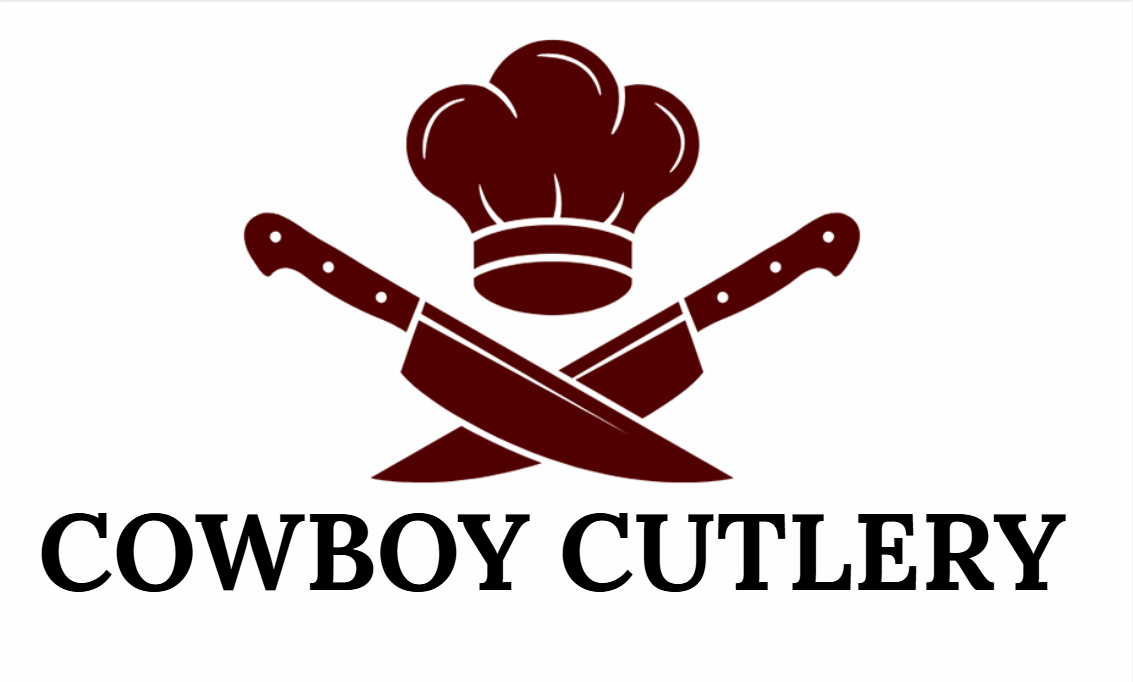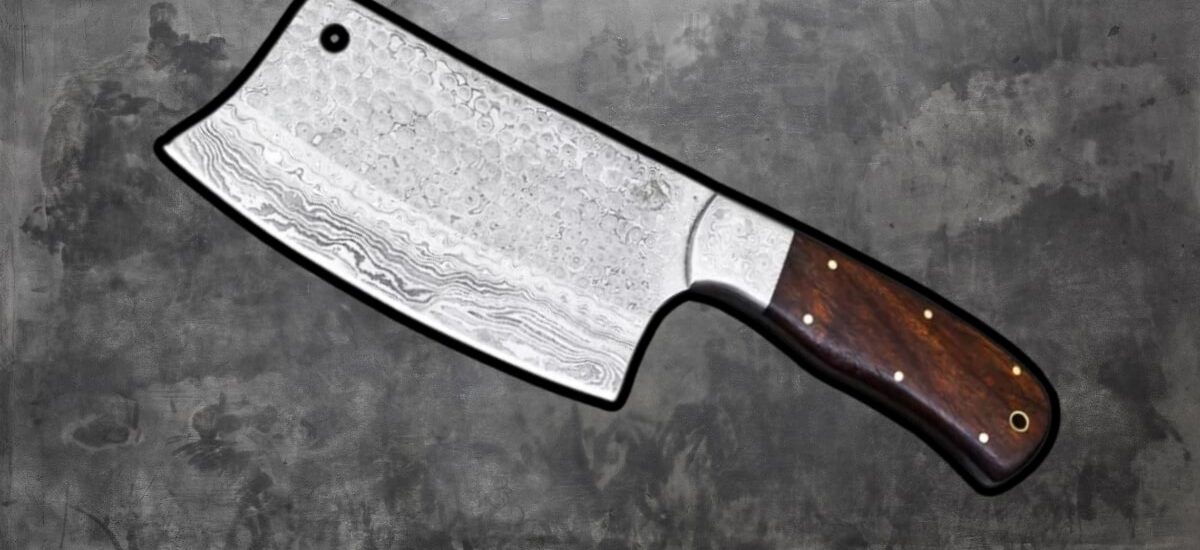You’ve got your professional chef knife set lined up on the counter. A shiny Damascus chef knife ready for slicing veggies, a Damascus kitchen knife perfect for precision cuts—but something’s still missing.
That’s right.
You must have a butcher knife, the workhorse of the kitchen, the muscle behind every meat preparation session.
Butcher knives are up to the task whether you are cleaning a whole chicken or getting to work on a rack of ribs. They are chunky, robust and designed to make the cuts that other knives would be afraid to take.
Let’s explore what a butcher knife really is, why it deserves a place in your kitchen, and how it compares to other knives like the knife cleaver or cowboy knives.
What Exactly Is a Butcher Knife?
Butcher knife is a large and heavy duty knife used to cut down large pieces of meat. It has: Unlike your typical chef knife:
- long, curved blade (typically 8–10 inches)
- Thicker spine to make it stronger.
- A sharp blade designed to slice flesh, fat and even small bones.
It is the favorite knife of a butcher, but the name is not important. It can improve your home cooking even without working in a meat counter with a good butcher knife.
How It Differs From a Knife Cleaver
People often confuse a butcher knife with a knife cleaver, but they’re not quite the same thing.
| Feature | Butcher Knife | Knife Cleaver |
| Blade Shape | Rounded edge and sharp end | Rectangular and even flat |
| Purpose | Butchering and cutting | Sawing bones and joints |
| Weight | Medium-heavy | Very heavy |
| Control | More precise | Still, more brute force |
When you have bone-in meats, then you may reach out to a cleaver. And when it comes to clean slicing, skinning, trimming fat or portioning meat, the butcher knife is king.
Why Every Home Cook Should Own One
One does not need to be a professional to realize the essence of a good butcher knife. This is why this knife should be in any kitchen:
Efficiency:
Say goodbye to frustrative dull or weak knives. Butcher knives are knives that move through meat like butter.
Versatility:
They don’t just do brisket. Slicing melons, chopping herbs or even dicing vegetables.
Durability:
With quality steel—like Damascus steel knife options—these knives can last a lifetime with proper care.
Style Factor:
A Damascus chef knife or Damascus kitchen knife version of a butcher knife isn’t just tough—it’s a showpiece.
What to Look for in a Butcher Knife
Before purchasing one of these to add to your kitchen arsenal, consider the following features:
1. Blade Material
Opt for high-carbon stainless steel or go premium with a Damascus steel knife. Damascus has great edge holding ability and is very pretty with a wavy pattern.
2. Blade Length
The optimal length is normally 8–10 inches. The longer the blade, the better able it is to deal with large roasts, but the shorter blade will provide you with greater control.
3. Handle Comfort
A full-tang handle (with metal coming through handle) provides improved balance and control. Handles can be added of wood, G10, or micarta to improve grip and add style.
4. Edge Sharpness
The sharper the better. Factory-sharpened edges are good, or seek out hand-sharpened ones where available.
Butcher Knife vs. Chef Knife
Your professional chef knife set might already include a multi-purpose blade—but that doesn’t mean you should skip the butcher knife.
Chef knives are wonderful chopping, slicing and dicing knives, however, they are not the best choice when dealing with tough cuts of meat.
Butcher knives, however, have been explicitly designed to work with meat—something that chef knives cannot do after a while.
When meat is a common ingredient in your cuisine, do not stick to your chef knife only. You must have a butcher knife.
The Damascus Difference
When it comes to performance and aesthetics, then a Damascus butcher knife is the place to be.
The construction of these knives is done by layering several steels on top of each other, forming a wavy pattern, which not only looks pretty but also increases strength and edge retention. A damascus kitchen knife version of the butcher knife offers top-tier cutting ability and a premium feel.
Such is the Cowboy Cutlery, which produces Damascus chef knives and butcher knives of high performance as beautiful as they are efficient. These are the type of knives you bring out at the BBQ.
Cowboy Knives: The Wild Side of Butchery
Speaking of BBQs—let’s talk cowboy knives.
These general purpose, tough blades are frontier-inspired. They are not the same as butcher knives but the uses may frequently overlap—particularly in outdoor or rustic cooking. A good cowboy knife will serve as a butcher knife, skinning knife or camp knife.
A combination of a cowboy knife and a butcher knife will provide you with an ultimate mixture of coarse functionality and sharp cutting ability.
Top Uses for Butcher Knives
Still have doubts whether this is the knife you need? A butcher knife can tackle some things like a champ including the following:
- The process of trimming fat on brisket
- Portioning steaks
- Pork shoulder cutting
- Slicing turkey or entire chicken
- Cutting huge fruits (such as watermelon)
- Even preparing BBQ ribs
And if you invest in a best cleaver knife too—you’ll have a cutting combo that can tackle anything.
Final Thoughts: Bring the Butcher Knife Home
Butcher knife is not to be ignored if you are serious about cooking, particularly with meat. It is robust, strong, and sharp, and it is intended to be used on the rough tasks that your chef knife was not designed to do.
For those who want beauty with their blades, a Damascus chef knife or Damascus steel knife version adds elegance and edge retention. And if you’re building a complete professional chef knife set, make sure a quality butcher knife is part of it.
Need something tough and trusty? Don’t forget about cowboy knives—a nod to wild tradition with modern performance.
Regardless of your kitchen configuration, butcher knives are a clever, powerful accessory that transforms home cooks into assertive meat masters.


